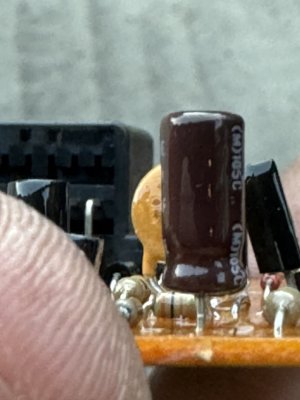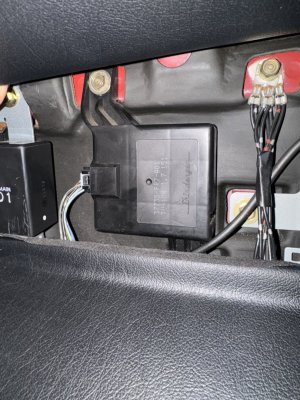I started getting this interesting issue on my '91 NA1 where the AC does not blow cold, randomly. The blower fan seems to work just fine, I get a bunch of hot air coming at me where the climate control system is trying to cool the cabin to 60*F. I do not believe I hear/feel the compressor kick in when this happens.
The strange part is how intermittent the issue happens. It can be an entire week or month, no issue. The car will start up blowing cold AC and work all day throughout various trips (turning the car off and coming back to it). Then on the other hand sometimes it will be working and when I park and come back after 15 minutes, no more cold AC. A few days later when I drive again, it's back to working normally.
In a few cases where I had longer drives (30+ minutes) when it was not working, it suddenly began blowing cold. It does not always "get cold eventually" though. I have never had the opposite problem though, where it would stop blowing cold. If it's cold it will stay cold for the duration of the trip, it's just a matter of will it decide to work next trip.
Given this temperamental behavior, I don't think it's any of the main AC components themselves but likely an electrical/control module issue. Whatever is telling the parts of the system to work, isn't in those cases. I have a hunch it's the fan control system that's next to the ECU, which talks to the compressor. Perhaps some aging/bad capacitors or relays inside are causing the compressor to not be enabled when it should be.
I have been going through the service manual trying to identify how the system works. Earlier today when it was acting up, I tried the "self-diagnostics" for the climate control on Page 22-12. I am not sure if I was doing it right, but nothing seemed to illuminate to give hints as to what could be the issue.
Any ideas would be appreciated! (I do have the R-134a retrofit system)
The strange part is how intermittent the issue happens. It can be an entire week or month, no issue. The car will start up blowing cold AC and work all day throughout various trips (turning the car off and coming back to it). Then on the other hand sometimes it will be working and when I park and come back after 15 minutes, no more cold AC. A few days later when I drive again, it's back to working normally.
In a few cases where I had longer drives (30+ minutes) when it was not working, it suddenly began blowing cold. It does not always "get cold eventually" though. I have never had the opposite problem though, where it would stop blowing cold. If it's cold it will stay cold for the duration of the trip, it's just a matter of will it decide to work next trip.
Given this temperamental behavior, I don't think it's any of the main AC components themselves but likely an electrical/control module issue. Whatever is telling the parts of the system to work, isn't in those cases. I have a hunch it's the fan control system that's next to the ECU, which talks to the compressor. Perhaps some aging/bad capacitors or relays inside are causing the compressor to not be enabled when it should be.
I have been going through the service manual trying to identify how the system works. Earlier today when it was acting up, I tried the "self-diagnostics" for the climate control on Page 22-12. I am not sure if I was doing it right, but nothing seemed to illuminate to give hints as to what could be the issue.
Any ideas would be appreciated! (I do have the R-134a retrofit system)










